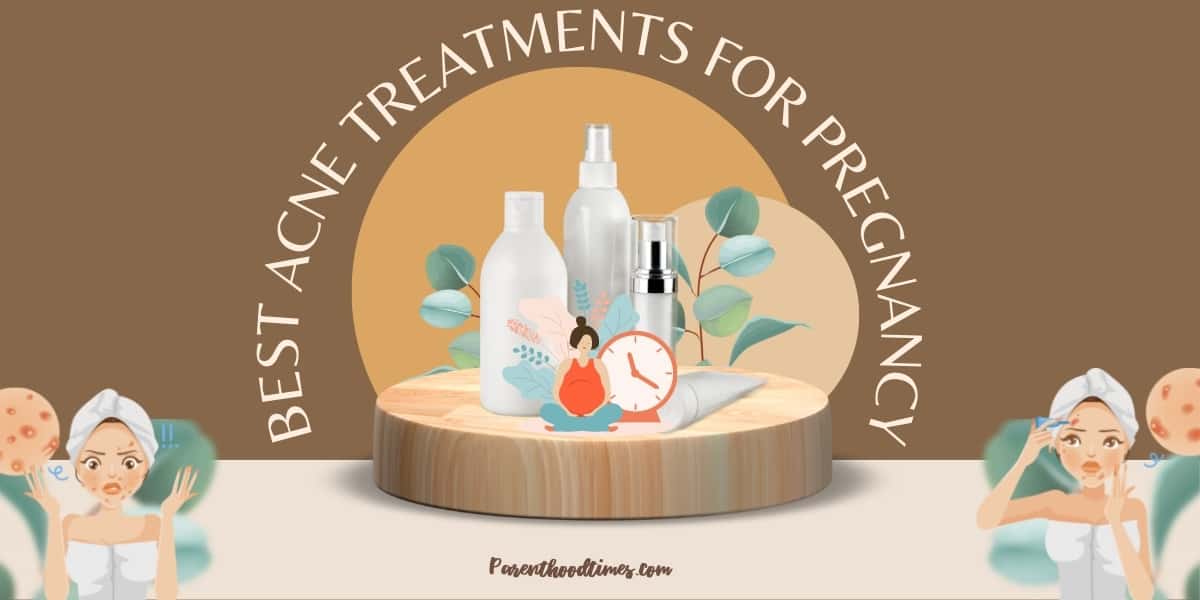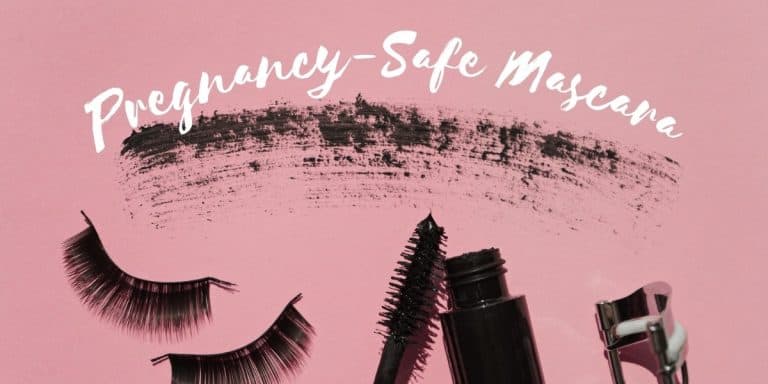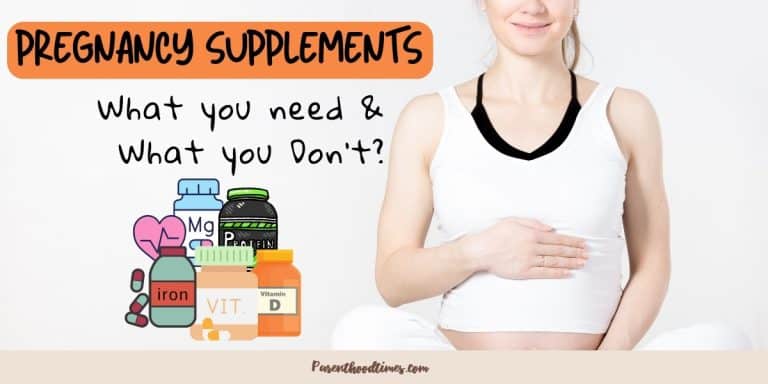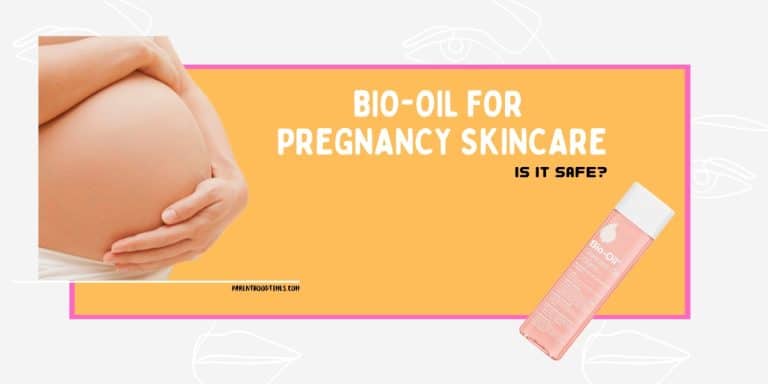The Ultimate Guide to Safe Acne Treatments During Pregnancy
Acne during pregnancy doesn’t differ from the type of acne that a woman experiences before becoming pregnant. The hormonal changes during pregnancy alter their skin’s oil production levels.
Sure, acne during pregnancy can be stressful and all-consuming. But that doesn’t mean there’s no hope! When you have access to the right resources, you can prevent and treat pregnancy acne right at your home. Check our expert guide below for suggestions on safe acne treatments during pregnancy.
But before you try acne remedies, it is important to understand what acne looks like during your pregnancy and how you can treat it effectively while pregnant.
What is Pregnancy Acne?
As said earlier, pregnancy acne is no different from common acne types. One factor that’s mainly responsible for pregnancy breakouts is hormones. Pregnancy acne may begin as early as the first trimester and last till the third trimester.
Read Also: 10 Best Pregnancy-Safe Products for Pregnancy Acne Treatments
While acne flare-ups usually get worsen during the third trimester, the severity varies from person to person. It can even occur in women who have never experienced acne before.
What does Pregnancy Acne look like?
Besides the common acne symptoms of blackheads and whiteheads, you may see the following in pregnancy acne:
Comedones: These are enlarged hair follicles (pores) with a plug of oil and bacteria in them. Comedones can be wide open or closed. Open comedones are blackheads; closed comedones are whiteheads.
Pustules: Pustules are inflamed bumps in the skin with pus at their tips. Pustules look like pimples.
Nodules: These are large, painful, solid lesions that form under the skin’s surface. Nodules can last for weeks or months and can lead to scarring if not treated early.
Cysts: These are clogged pores that contain sebum, bacteria, and dead skin-filled lesions that resemble boils.
Now you know what pregnancy acne is and what it looks like. Let’s explore some effective and safe treatment options for pregnancy acne.
Safe Acne Treatments While Pregnant
There are mainly two principal ways you can treat pregnancy acne. They are:
Prescription medications and over-the-counter acne treatments. Topical use of clindamycin, such as clindamycin gel, is likely safe to use while pregnant.
However, OTC acne treatments are considered first-line treatment or first-line therapy for pregnant women. The most commonly used OTC acne treatment options are:
- Benzoyl peroxide
- Azelaic acid
- Salicylic acid
Benzoyl peroxide is a powerful antimicrobial ingredient that helps fight acne-causing bacteria and minimize inflammation. Hence it can be used for the purpose of both preventing and treating acne. Benzoyl peroxide can cause allergic reactions or severe skin irritations in some people when used for long periods.
Azelaic acid and Salicylic acid are two safe and potent skin superheroes for acne. But they work differently. According to the American Academy of Dermatology (AAD), salicylic acid works by dissolving the oil, dead skin cells, and bacteria that clog pores, whereas azelaic acid targets the environment where the acne-causing bacteria thrive. Both are equally effective in reducing spots and acne blemishes, but salicylic acid is more likely to dry out skin than azelaic acid.
There’s no single “best” treatment for acne because different things work for different people. Find a product your skin can tolerate. It’s important to consult a dermatologist before trying over-the-counter acne treatments or prescription medications.
Natural Remedies for Pregnancy Acne
Many natural remedies for acne treatments can help you get rid of acne. These natural remedies are effective and can help you get rid of acne without the side effects of prescription drugs. There are different natural remedies for various types of acne. These include:-
Zinc: One study on zinc and acne found that people with mild-to-moderate acne have zinc levels that are lower than those of people who don’t have acne.
You can find zinc in many foods, including:
- Red meat
- Poultry
- Seafood
- Seeds
- Nuts
- Beans, and
- Fortified breakfast cereals
The NIH recommends 8 milligrams (mg) daily for adult women and 11 milligrams (mg) for adult men. The recommended dietary allowance (RDA) during pregnancy is 11 milligrams (mg) daily. Zinc supplements can interact with other medications and may cause adverse effects when a person takes too much. For these reasons, speaking to your doctor before taking any zinc supplement is vital.
Vitamin A: Vitamin A refers to a family of chemical compounds called retinoids. They are necessary for the healthy growth of body tissues. They also help shed dead skin cells and prevent the clogging of pores.
Vitamin A not only supports overall skin health but also regulates sebum production in the skin, thus keeping it oil-free.
However, avoid foods high in vitamin A, such as liver and liver pâté. Also, consult with your doctor before using skincare products while pregnant. Some retinoids in skincare products are known to cause congenital disabilities.
The best food sources of vitamin A are:
- Carrots
- Egg
- Sweet potatoes
- Kale
- Spinach
- Cantaloupe melon
Honey: Honey has natural antibacterial properties that help kill bacteria and reduce inflammation in the skin. Honey also has an anti-inflammatory effect that helps reduce redness and swelling associated with breakouts. This treatment also may help keep dirt out of the pores on your nose, which may help prevent blackheads.
Tea Tree oil: Tea tree oil might be a safe and effective natural remedy for pregnancy acne. It has antibacterial properties that help keep the skin clear and acne-free.
To use tea tree oil for treating acne, prepare a mix with one-part tea tree oil and nine parts water and apply to the affected area with a cotton ball. You can also use a few tea tree oil drops on a clean cotton swab and apply it directly to pimples as a spot treatment. Repeat either of these methods one to two times a day, as needed.
Now you know both OTC and natural treatment options for pregnancy. But when trying to enjoy the miracle of life, you certainly don’t want to deal with breakouts. There are ways to prevent pregnancy acne.
Prevention of Pregnancy Acne
The best way to manage pregnancy acne is to have a good skincare routine.
Try to cleanse your face twice daily with a mild facial cleanser and lukewarm water. Avoid harsh soaps and astringents, which can dry your skin out and cause irritation or inflammation.
Use oil-free moisturizers, makeup products, and natural sunscreens that are noncomedogenic or non-acnegenic. These products won’t clog your pores and lead to breakouts.
Gently exfoliate your skin every few days using an exfoliating scrub or a soft washcloth. It will help remove dead skin cells from the skin surface, unclogging pores to reduce pimples and blackheads. Don’t scrub too hard — this might irritate your sensitive skin and worsen acne.
Conclusions
Note that there is no such thing as a miracle cure for acne. Before starting any form of treatment, consult with your doctor. Each case is unique, and some may not be safe to treat at home. It is also important to start treatment early upon noticing the first signs of acne. Studies have shown that this will prevent acne from getting worse and cause less scarring in the long run.







